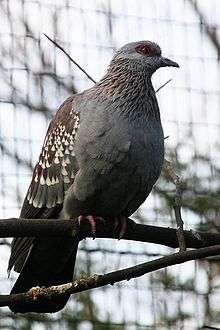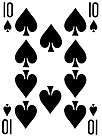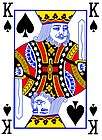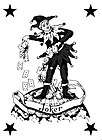due
English
Etymology
From Middle English dewe, dew, due, from Old French deü (“due”), past participle of devoir (“to owe”), from Latin dēbēre, present active infinitive of dēbeō (“I owe”), from dē- (“from”) + habeō (“I have”).
Pronunciation
- (UK) enPR: dyo͞o, jo͞o, IPA(key): /djuː/, /dʒuː/
- Homophone: dew
- (US) enPR: do͞o, IPA(key): /du/
- (General Australian, General New Zealand) enPR: jo͞o, IPA(key): /dʒʉː/
- Rhymes: -uː
Adjective
due (comparative more due, superlative most due)
- Owed or owing.
- He is due four weeks of back pay.
- The amount due is just three quid.
- The due bills total nearly seven thousand dollars.
- He can wait for the amount due him.
- Appropriate.
- With all due respect, you're wrong about that.
- (Can we date this quote?) Gray
- With dirges due, in sad array, / Slow through the churchway path we saw him borne.
- Scheduled; expected.
- Rain is due this afternoon.
- The train is due in five minutes.
- When is your baby due?
- Having reached the expected, scheduled, or natural time.
- The baby is just about due.
- 1963, Margery Allingham, chapter 1, in The China Governess:
- The huge square box, parquet-floored and high-ceilinged, had been arranged to display a suite of bedroom furniture designed and made in the halcyon days of the last quarter of the nineteenth century, when modish taste was just due to go clean out of fashion for the best part of the next hundred years.
- Owing; ascribable, as to a cause.
- The dangerously low water table is due to rapidly growing pumping.
- (Can we date this quote?) J. D. Forbes
- This effect is due to the attraction of the sun.
- 1922, Ben Travers, chapter 2, in A Cuckoo in the Nest:
- Mother […] considered that the exclusiveness of Peter's circle was due not to its distinction, but to the fact that it was an inner Babylon of prodigality and whoredom, from which every Kensingtonian held aloof, except on the conventional tip-and-run excursions in pursuit of shopping, tea and theatres.
- On a direct bearing, especially for the four points of the compass
- The town is 5 miles due North of the bridge.
Synonyms
Derived terms
- due to
- driving without due care and attention
- due date
- due process
- fall due
- in due time
- taxes due
- with all due respect
Translations
|
|
|
|
|
|
Adverb
Translations
Noun
due (plural dues)
- Deserved acknowledgment.
- Give him his due — he is a good actor.
- 2015 January 31, Daniel Taylor, “David Silva seizes point for Manchester City as Chelsea are checked”, in The Guardian (London):
- Chelsea, to give them their due, did start to cut out the defensive lapses as the game went on but they needed to because their opponents were throwing everything at them in those stages and, if anything, seemed encouraged by the message that Mourinho’s Rémy-Cahill switch sent out.
- (in plural dues) A membership fee.
- That which is owed; debt; that which belongs or may be claimed as a right; whatever custom, law, or morality requires to be done, duty.
- (Can we date this quote?) William Shakespeare
- He will give the devil his due.
- (Can we date this quote?) Tennyson
- Yearly little dues of wheat, and wine, and oil.
- (Can we date this quote?) William Shakespeare
- Right; just title or claim.
- (Can we date this quote?) John Milton
- The key of this infernal pit by due […] I keep.
- (Can we date this quote?) John Milton
Derived terms
- give someone his due
- give the devil his due
Translations
Further reading
- due in Webster’s Revised Unabridged Dictionary, G. & C. Merriam, 1913.
- due in The Century Dictionary, New York, N.Y.: The Century Co., 1911.
- due at OneLook Dictionary Search
Danish
Etymology
From Old Norse dúfa, from Proto-Germanic *dūbǭ. Compare Norwegian Bokmål due, Swedish duva, Icelandic dúfa, West Frisian do, German Low German Duuv, Dutch duif, German Taube, English dove.
Pronunciation
- IPA(key): /duːə/, [ˈd̥uːə], [ˈd̥uːu]
Inflection
Esperanto
| < 1-e | 2-e | 3-e > |
|---|---|---|
| Cardinal : du Ordinal : dua Adverbial : due Multiplier : duobla Fractional : duona | ||
Pronunciation
Audio (file)
French
Pronunciation
- IPA(key): /dy/
Audio (file)
Ido
Pronunciation
- IPA(key): /ˈdu̯e/
Italian
| < 1 | 2 | 3 > |
|---|---|---|
| Cardinal : due Ordinal : secondo Multiplier : doppio Distributive : doppiamente Collective : entrambi Fractional : mezzo | ||
Etymology
From Latin duae, feminine plural of duo, from Proto-Italic *duō, from Proto-Indo-European *dwóh₁.
Pronunciation
- IPA(key): /ˈdu.e/, [ˈd̪uːe]
- Hyphenation: dù‧e
Noun
due m (invariable)
due f pl
- (following the article le) two o'clock (a.m. or p.m.)
- Sono le due. ― It's two o'clock.
Middle English
Norwegian Bokmål

Etymology
From Old Norse dúfa, from Proto-Germanic *dūbǭ. Compare Danish due, Swedish duva, Icelandic dúfa, Dutch duif, German Taube, English dove.
Hyponyms
- duestegg
Norwegian Nynorsk
Etymology
From Old Norse dúfa, from Proto-Germanic *dūbǭ. Compare Danish due, Swedish duva, Icelandic dúfa, Dutch duif, German Taube, English dove.
Pronunciation
- IPA(key): /²dʉːə/
Swedish
Etymology
Common contraction of du (“you (sing.)”) and e, colloquial pronunciation spelling of är (“are”).






